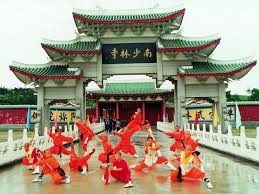Religious affairs authorities in Henan Province said in a statement on Thursday that it plans to investigate allegations of Shaolin Temple Abbot Shi Yongxin being involved in a sex scandal while safeguarding the religious society's rights.
Shi was recently accused online by a self-proclaimed follower going by the alias Shi Zhengyi ("interpreting justice" in Chinese) as an "embezzler and womanizer," with supporting documents dating back to the late 1980s. The accuser also claims Shi has illegitimate children.
On Tuesday, the accuser revealed the identity of a woman he claims to be one of the mothers of Shi's illegitimate children.
Sexual acts are not allowed within the temple, but Shaolin monks are allowed to marry once they leave the temple.
The State Administration for Religious Affairs said that the Henan provincial religious department has been asked to verify the accusations against Shi.
In an effort to conserve the temple and Chinese Buddhism's reputation and image, the Buddhist Association of China said on Thursday that it has talked to related departments and hopes the investigation ends soon.
The Shaolin Temple has denied all allegations and has reported the accuser for "fabricating information and malice."
Since Shi became the Shaolin abbot in 1999, he has remained a controversial figure. Allegations of corruption and misconduct have often plagued Shi, such as reports of him owning a luxury car, accepting a $25,000 robe given by local officials, hiring prostitutes and keeping mistresses.
One of the biggest criticisms toward the abbot has been how he has promoted the Shaolin brand and turned it into a multimillion-dollar business. Earlier this year, he wrote a $3-million check to an Australian town to build a Shaolin branch there, in the name of cultural promotion.
The latest accusations of corruption have highlighted how he is a corrupt monk at a time when President Xi Jinping has vowed to eradicate corruption. Xi's campaign has led to thousands of arrests and convictions of public officials on charges of graft and corruption.
As a national legislator in China's rubber-stamp parliament, Shi can be considered a public official.



























